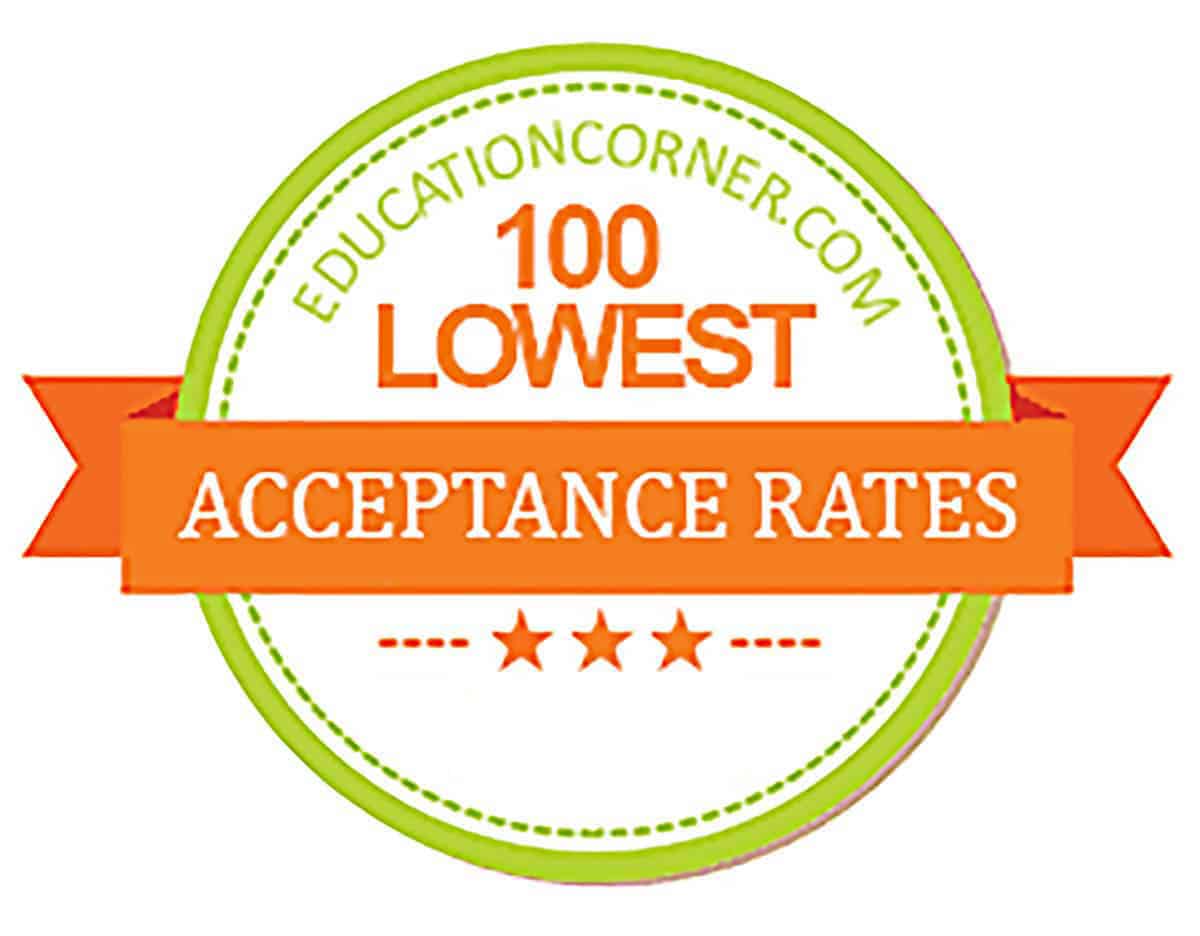Understanding Lowest Rated Colleges: What You Really Need To Know For 2024
Thinking about college can be a big step, and it's quite natural to wonder about all the options out there, even those sometimes called "lowest rated colleges." It's a phrase that can spark a lot of questions, making you ponder what that really means for a student's future.
When we hear "lowest rated," our minds might jump to immediate conclusions, but the truth is often a bit more layered. It's not just about a simple number; there are many factors that play into how a college gets such a label, and what it might mean for someone considering it, you know?
This piece aims to shed some light on what "lowest rated colleges" truly means, how these labels come about, and what you, or someone you care about, should really consider when looking at higher education options. We'll explore the idea, so you can make choices with a clear head, too it's almost.
Table of Contents
- What Does "Lowest Rated College" Really Mean?
- The Criteria Behind the Ratings
- Beyond the Numbers: A Deeper Look
- Is a "Lowest Rated" College Always a Bad Choice?
- How to Spot Potential Issues Before You Apply
- Making an Informed Decision
- Frequently Asked Questions
What Does "Lowest Rated College" Really Mean?
The term "lowest rated colleges" isn't something you'll find on an official government list, you know. Instead, it comes from various places. It's often a label given by different college ranking systems, like those you see in popular magazines or on websites. These systems use their own sets of rules to measure schools, and some schools just don't score as high as others, so.
It's also, quite frankly, a bit of a public perception thing. What one person considers "lowest" might be different for another. It's not a simple, single measure, but rather a blend of many different things that come together to form an overall impression, or perhaps a placement on a list, you see.
Our own discussions on language, like "What is the difference between least and lowest," highlight this point. Just because something is called "lowest" doesn't always mean it's the absolute bottom in every way. Websites might announce "lowest prices," but not "least," which implies a different kind of comparison, doesn't it? This suggests that "lowest" can be about a position or a comparative measure, not necessarily the absolute worst quality, you know.
- Alex Trebek Donated Jeopardy Wardrobe So Down On Their Luck People Would Have Clothes For Job Interviews
- Take A Tour Of Dr Ozs 18 Million Oceanfront Florida Mansion
The Criteria Behind the Ratings
When you see a college listed as "lowest rated," it's usually because it performs less well in certain areas that these ranking systems consider important. These are the kinds of things that can really impact a student's experience and future, you know.
Graduation and Retention Rates
One of the biggest indicators is how many students actually finish their degrees, and how many stick around from year to year. If a college has very low graduation rates, it suggests that many students either don't complete their studies there or they transfer out. This can be a sign that the school isn't providing the support or the academic environment needed for students to succeed, you know, which is a bit concerning.
Similarly, low retention rates, where a lot of students leave after their first year, can point to issues. Maybe the academic fit isn't there, or perhaps the student support services aren't quite up to par. It's a pretty strong signal, you know, about how well the college is serving its learners.
Student Debt and Earnings After Graduation
Another big factor is what happens after students leave. If graduates from a particular college tend to have a lot of student loan debt but then struggle to find jobs that pay well, that's a red flag. It suggests that the financial investment in that education might not be paying off, which is a big deal for most families, isn't it?
This measure looks at the return on investment. Are students getting a good value for their money? Are they able to use their degree to build a stable financial future? If the answer is often no, then that college might appear on the "lowest rated" lists, you see.
Resources and Support for Students
A college's resources and the support it offers students are also very important. This includes things like the number of students per faculty member, the quality of academic advising, career services, and even mental health support. If these resources are lacking, students might find it much harder to get the help they need to thrive academically and personally, you know.
A place with few tutors, limited counseling, or a small library budget might struggle to give students a full, enriching experience. It's about providing a solid foundation for learning and personal growth, and if that's not there, it can affect ratings, you know.
Beyond the Numbers: A Deeper Look
The idea of "lowest" is more than just a simple ranking, especially when we think about it more broadly. Our own discussions about the word "lowest" give us a bit of a different perspective on this whole thing, too it's almost.
What "My Text" Tells Us About "Lowest"
It's quite interesting that the earliest matches for "lowest" in our discussions often lead to deeper meanings. For example, we noted that "the most revered or main character of the story being told is the lowest or closest to earth." This suggests that "lowest" can sometimes imply a fundamental, foundational position, rather than something inferior. It's like being at the root of something, providing the base, you know.
Then there's the mathematical idea: "The lowest common denominator sounds like it's smaller than the greatest common divisor, when in fact it's the opposite." This points to how the word "lowest" can be misunderstood, making something sound small or insignificant when its impact or scope is actually quite large. So, a "lowest rated college" might be misconstrued, or it might point to fundamental issues that need fixing, rather than just being "bad" in every sense. It's a different way of looking at things, isn't it?
This perspective tells us that while a college might be "lowest rated" by some measures, it doesn't necessarily mean it's without any value or that it can't serve a crucial purpose for some students. It might be addressing very basic needs, or it might represent a starting point for many, you know. It’s a bit like thinking about the difference between "least" and "lowest" – they carry different feelings and implications, don't they?
The "Highest as the Lowest" Form of Criticism in Education
We also talked about "the highest as the lowest form of criticism." This phrase means that the most extreme forms of criticism, both the highest praise and the lowest dismissal, share a certain quality. Applied to colleges, this is a bit of a thought-provoker, you know.
Perhaps the "lowest rated" colleges, in a way, represent the extreme end of the educational spectrum that needs our attention. They might be the institutions where the challenges are most apparent, forcing a focus on the most basic aspects of education. It’s not a very good expression to use outside mathematics, as it sounds, but it does make you think about extremes.
This idea suggests that even the "lowest" can hold a mirror up to the entire system, showing us where improvements are most needed. It’s about seeing these institutions not just as failures, but as places that highlight broader issues in higher education. It’s a mode of thinking that goes beyond simple judgment, you know.
Is a "Lowest Rated" College Always a Bad Choice?
It's a common thought that a "lowest rated college" is automatically a poor choice for anyone, but that's not always the case, you know. For some students, such a school might actually be a very good fit. It really depends on what a student is looking for, and what their personal circumstances are, doesn't it?
Sometimes, a smaller, less competitive school that might appear lower on rankings could offer a more personal learning environment. Some students thrive in places where they get more individual attention, or where the pressure isn't quite so intense. This could be a real benefit for certain learners, you know.
Cost is also a huge factor for many families. A "lowest rated" college might have much lower tuition fees, making higher education more accessible. For someone who wants to avoid a lot of debt, this could be a smart financial decision, especially if they plan to transfer later or have a clear career path that doesn't strictly require a top-tier degree, you know, that is.
Moreover, some colleges are just starting to improve. They might be investing in new programs, hiring new faculty, or putting more resources into student support. A college that was "lowest rated" a few years ago might be on an upward path now. It's about finding the right fit for you, and sometimes that fit isn't always at the top of a ranking list, is it?
How to Spot Potential Issues Before You Apply
If you're looking at a college that appears on some "lowest rated" lists, don't just dismiss it right away. Instead, do your own homework. There are ways to dig deeper and find out what's really going on, so you can make a choice that feels right for you, you know.
Researching Beyond the Rankings
Don't just rely on one ranking system. Look at specific program accreditation – this tells you if a particular course of study meets certain quality standards. Check the credentials of the faculty in your chosen field. Are they experienced? Do they have good reputations? This is pretty important, you know.
Also, try to find student outcomes data directly from the college. How many graduates find jobs in their field? What are their average starting salaries? Do they have a strong alumni network that can help with job placements? These numbers can give you a much clearer picture than a general ranking, you know, they really can.
For more general information on college choices, you might want to check out resources from a reputable educational website. It's always good to get different perspectives, isn't it?
Visiting Campuses and Talking to People
Nothing beats actually visiting a campus if you can. When you're there, try to talk to current students. Ask them about their experiences, what they like, and what they find challenging. Their honest opinions can be very telling, you know.
Also, speak with faculty members in the departments you're interested in. Ask about their teaching styles, their research, and how they support students. Chat with admissions staff, but also try to talk to people in financial aid and career services. Getting a feel for the campus culture and the people who make it up can tell you a lot more than any ranking, it really can, so.
Learn more about college choices on our site, and link to this page for more admissions tips.
Making an Informed Decision
Choosing a college is a very personal decision, and it's one that should be made with a lot of thought. Don't let a "lowest rated" label scare you off completely, but do let it prompt you to do a bit more digging. It's about finding a place where you can learn, grow, and truly thrive, isn't it?
Consider your own academic goals, your financial situation, and what kind of learning environment suits you best. Research carefully, ask lots of questions, and trust your gut feeling. A college that's "lowest rated" for one person might be the perfect fit for another, you know, and that's just how it is.
Frequently Asked Questions
What criteria are used to rate colleges as "lowest"?
Colleges often get a "lowest" rating based on things like low graduation rates, students taking on a lot of debt without strong earnings after leaving, and fewer resources for student support. It's a mix of different measures that come together, you know.
Can a "lowest rated college" still be a good choice for some students?
Yes, absolutely. For some students, a college that appears "lowest rated" might offer a better fit due to lower costs, a more personal learning environment, or specific programs that are actually quite good. It really depends on individual needs and goals, you know.
How can I find out a college's true quality beyond rankings?
To really know a college's quality, look beyond the rankings. Check out specific program accreditations, talk to current students and faculty, and visit the campus if you can. Also, try to find data on what graduates actually do after leaving, like their job placement rates and earnings. These things give you a much clearer picture, you know.

Colleges with the Lowest Graduation Rate in the United States

Top 100 College with Lowest Acceptance Rates (Updated 2023)

2025 15 Lowest Acceptance Rate Colleges (Ranked)